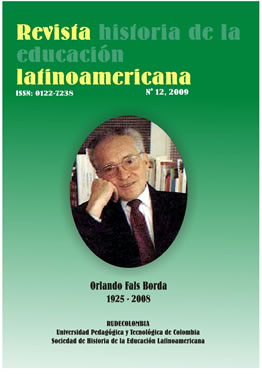CITIZENSHIP AND PUBLIC INSTRUCTION FOR THE NATION- STATE IN VENEZUELA, 1811-1920

Abstract
At the very beginning of the republican foundation and its subsequent development as state-nation, the public instruction and the citizenship were organized based on the liberal-illustrated ideology. To explain their historic happening in Venezuela during the early decades of the nineteenth century and the early ones of the twentieth, this article intends to demonstrate that, for the political objective, the teaching methods and the pedagogical practices were decisive to institute the civil order from the very primary school. The first part illustrates on the doctrinaire principles of the liberal-illustrate philosophy, as for citizenship and the State’s school obligatory. The second illustrates its applications in the original constitutions, educational projects and first school regulations in the Colombian republican times. The third deals with the system of mutual education in primary schools of Venezuela, regulations and its results for mid-nineteenth century, starting from the educational experience in Maracaibo, provincial capital and of corner. The study is ended with new public instruction decrees in order to consolidate the liberal and centralized State-Nation, oriented towards a nationalistic citizenship for the national unity within the order for progress. It’s concluded that civility and utilitarian knowledge, correlated to patriotic rituals, were constitutive for the public primary instruction in Venezuela.Keywords
Citizenship, Public Instruction, State-Nation, Venezuela.
Downloads
Download data is not yet available.